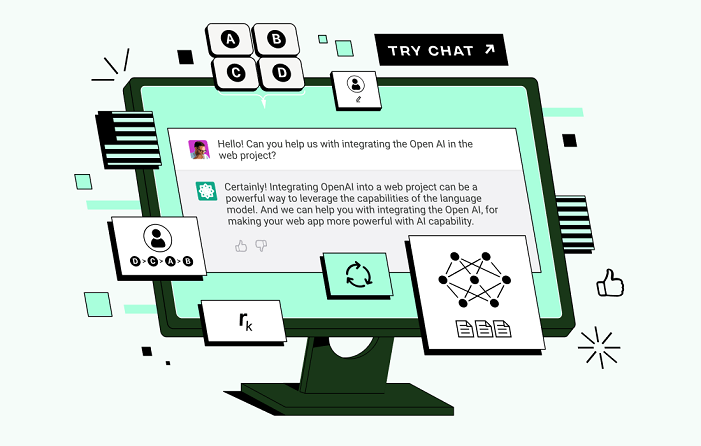Development openaievans financialtimes: A comlete guide

In the rapidly evolving landscape of artificial intelligence (AI), OpenAI has emerged as a prominent figure, pushing the boundaries of what’s possible with AI technologies. This blog post aims to explore OpenAI’s impact on development, drawing insights from a featured article in the Financial Times. We’ll delve into how OpenAI’s innovations are influencing various sectors, the challenges and opportunities they present, and what the future holds for AI-driven development.
Introduction: OpenAI and Its Mission
Founded with a mission to ensure that artificial general intelligence (AGI) benefits all of humanity, OpenAI has been at the forefront of AI research and development. Since its inception, OpenAI has focused on creating AI technologies that are safe, transparent, and capable of solving complex problems across different domains.
Understanding OpenAI’s Technological Advancements
OpenAI’s contributions to AI technology have been significant and diverse. At the core of its innovations lie powerful AI models such as GPT (Generative Pre-trained Transformer) and DALL-E, which have revolutionized natural language processing and image generation capabilities, respectively.
1. GPT and Natural Language Understanding
GPT, particularly GPT-3, has garnered attention for its ability to generate human-like text and understand natural language with remarkable accuracy. This technology has applications in content generation, customer service automation, and even creative writing, demonstrating its versatility and potential impact on various industries.
2. DALL-E and Creative AI
DALL-E showcases OpenAI’s prowess in creative AI. This model can generate highly realistic images from textual descriptions, opening up possibilities in design, advertising, and virtual content creation. The ability to create visual content based on textual prompts illustrates AI’s potential to augment human creativity and productivity.
Impact of OpenAI’s Technologies on Development Initiatives
The deployment of OpenAI’s technologies has had profound implications across different sectors, driving efficiency, innovation, and new opportunities.
1. Enhanced Efficiency and Automation
One of the immediate benefits of integrating OpenAI’s technologies into workflows is enhanced efficiency and automation. For example, businesses can automate repetitive tasks such as data entry and analysis using AI-powered tools, thereby freeing up human resources for more strategic and creative endeavors.
2. Accessibility and Democratization
OpenAI has also focused on making advanced AI capabilities accessible to a broader audience through platforms like OpenAI API. This democratization of AI tools empowers developers, startups, and researchers worldwide to leverage state-of-the-art AI technologies without significant upfront costs or extensive technical expertise.
3. Transformative Potential in Healthcare
In healthcare, AI-powered diagnostics and personalized treatment recommendations are transforming patient care. OpenAI’s technologies can analyze vast amounts of medical data to identify patterns and insights that could lead to more accurate diagnoses and optimized treatment plans, ultimately improving patient outcomes.
Ethical Considerations and Challenges
While the benefits of AI are evident, its deployment raises important ethical considerations and challenges that must be addressed.
1. Ethical Use of AI
Ensuring that AI technologies are developed and deployed ethically is crucial. OpenAI has been proactive in promoting transparency, fairness, and accountability in AI systems to mitigate potential risks such as bias and misuse.
2. Impact on Employment and Workforce
The integration of AI technologies into industries has sparked debates about the future of work. While AI can enhance productivity and create new job opportunities, it also has the potential to automate certain tasks and roles, leading to concerns about job displacement and the need for reskilling and upskilling initiatives.
Financial Times’ Perspective on OpenAI’s Impact
The Financial Times has provided valuable insights into how OpenAI’s innovations are shaping various sectors, including finance, education, and beyond.
1. Finance and AI
In finance, AI-powered algorithms are revolutionizing investment strategies, risk management, and customer service. OpenAI’s technologies enable financial institutions to analyze market trends in real-time, make data-driven decisions, and enhance customer engagement through personalized recommendations.
2. Education and AI
AI technologies also hold promise in transforming education by personalizing learning experiences, automating administrative tasks, and providing students with adaptive learning tools. OpenAI’s contributions to educational technology could potentially bridge learning gaps and improve educational outcomes globally.
Looking Ahead: Future Prospects and Opportunities
As AI continues to evolve, the future holds promising opportunities for further innovation and collaboration.
1. Advancements in AI Research
OpenAI remains committed to advancing the field of AI through ongoing research and development. Future advancements could lead to even more powerful AI models capable of tackling complex problems in healthcare, climate science, and other critical domains.
2. Collaboration and Ethical Guidelines
Collaboration between AI researchers, policymakers, and industry stakeholders will be essential in addressing challenges and shaping the ethical guidelines for AI deployment. OpenAI’s collaborative approach ensures that AI technologies are developed responsibly and benefit society as a whole.
Conclusion: OpenAI’s Role in Shaping the Future of Development
In conclusion, OpenAI’s impact on development, as highlighted by the Financial Times, underscores the transformative potential of AI technologies in addressing global challenges and driving economic growth. By enhancing efficiency, democratizing access to AI tools, and promoting ethical practices, OpenAI is paving the way for a future where AI serves as a powerful tool for positive change. As we navigate the complexities of AI-driven development, it is essential to remain vigilant about ethical considerations and collaborative efforts. By staying informed and engaged with developments in AI, we can harness its full potential to create a more inclusive and sustainable future.





